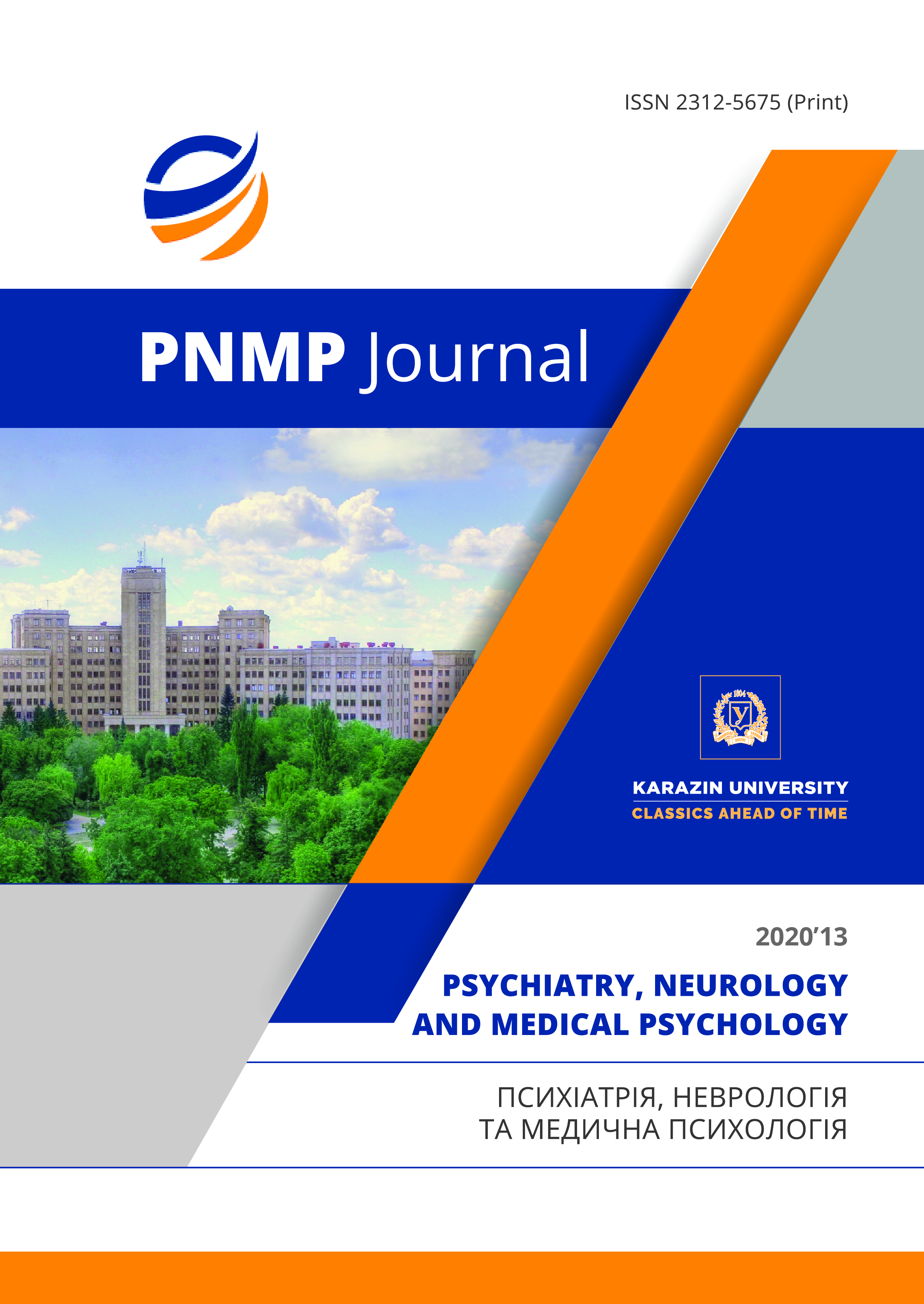Psychoeducation as an element of psychosocial interventions in a complex system of medic-psychological support for a family, where a patient with endogenous mental disorder lives
Abstract
The biopsychosocial model of therapy for endogenous mental disorders involves a flexible combination of psychopharmacotherapy with psychosocial interventions. Psychoeducation is one of the most important components of psychosocial interventions in a multifaceted system of psychosocial rehabilitation. The primary task of psychoeducation is to provide patients and their family caregivers with realistic knowledge about mental disorder, on the basis of which the patient and his or her family members can get more control over the symptoms of the disease.
The aim of our work was from the standpoint of a systematic approach, based on the study of clinical and psychological manifestations and risk factors for the development of pathological functioning in a family, where a patient with endogenous mental disorder lives, to develop, substantiate scientifically and introduce a psychoeducational module as an element of psychosocial interventions in complex system of medical -psychological support.
To achieve this goal, according to the principles of bioethics and medical deontology, a comprehensive examination of 243 patients with endogenous mental disorders (168 patients with paranoid schizophrenia, 75 patients with affective disorders) and 243 family caregivers was performed. The work was done in three stages: during the the first stage we examined patients and their family caregivers. During the second stage, an in-depth study of psycho-emotional, individual-psychological, interpersonal-communicative and psychosocial predictors of reducing the adaptive capacity of the family was performed. The third stage included scientific substantiation, development and implementation of an appropriate comprehensive system of medical and psychological support for the families, based on the analysis of data obtained during the previous stages.
The proposed system of medical and psychological support has shown its effectiveness in improving the adaptive capacity of the family, where patients with endogenous mental disorders live, and can be recommended for further implementation in appropriate medical institutions.
Downloads
References
Bugorskiy A.V. Psychiatric education of relatives of patients with schizophrenia and schizophrenic spectrum disorders Psychotherapy and psychosocial work in psychiatry. Saint-Petersburg: «Taro». 2017, pp. 49-56. [in Russ.]
Gurovich I.Ya. Workshop on psychosocial treatment and psychosocial rehabilitation of mentally sick. Moscow: Mediapraktika. 2002, p. 180. [in Russ.]
Akbari M, Alavi M, Irajpour A, Maghsoudi J. Challenges of Family Caregivers of Patients with Mental Disorders in Iran: A Narrative Review. Iranian Journal of Nursing and Midwifery Research. 2018, no. 23(5), pp. 329-337.
Alzahrani SH, Fallata EO, Alabdulwahab MA, Alsafi WA, Bashawri J. Assessment of the burden on caregivers of patients with mental disorders in Jeddah, Saudi Arabia. BMC Psychiatry. 2017, no. 17(1), p. 202. DOI:10.1186/s12888-017-1368-1
Souza A.L.R, Guimarães R.A., de Araújo Vilela D., et al. Factors associated with the burden of family caregivers of patients with mental disorders: a cross-sectional study. BMC Psychiatry. 2017, no. 17(1), p. 353. DOI:10.1186/s12888-017-1501-1
Zendjidjian X.Y., Boyer L. Challenges in measuring outcomes for caregivers of people with mental health problems. Dialogues in Clinical Neuroscience. 2014, no. 16(2), pp. 159–169.
Apesoa-Varano EC, Tang-Feldman Y, Reinhard SC, Choula R, Young HM. Multi-cultural caregiving and caregiver interventions: A look back and a call for future action. Generations. 2015, no. 39(4), pp. 39–48.
Berk L. Evaluation of the acceptability and usefulness of an information website for caregivers of people with bipolar disorder. BMC Medicine. 2013, no. 11(1), p. 162.
Davis L. L., Chestnutt D., Molloy M., Deshefy-Longhi T., Shim, B., & Gilliss C. L. Adapters, Strugglers, and Case Managers: A Typology of Spouse Caregivers. Qualitative Health Research. 2014, no. 24(11), pp. 1492–1500.
Geriani D. Burden of Care on Caregivers of Schizophrenia Patients: A Correlation to Personality and Coping. Journal of Clinical and Diagnostic Research. 2015, no. 9(3), VC01–VC04. DOI: 10.7860/JCDR/2015/11342.5654
Gupta S. Assessing Health Status in Informal Schizophrenia Caregivers Compared with Health Status in Non-Caregivers and Caregivers of Other Conditions. BMC Psychiatry. 2015, no.15. DOI:10.1186/s12888-015-0547-1
Gurovich I. Ya. Psychosocial therapy and psychosocial rehabilitation in psychiatry]. Moscow: Medpraktika-M. 2004, p. 492. [in Russ.]

